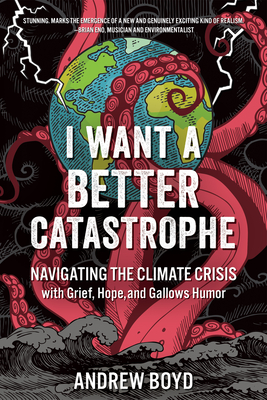What do you think?
Rate this book


416 pages, Paperback
Published February 14, 2023
Andrew Boyd is an author, humorist, and activist. His new book, I Want a Better Catastrophe: Navigating the Climate Crisis with Grief, Hope and Gallows Humor is forthcoming from New Society Publishers in February 2023. He is currently CEO (Chief Existential Officer) of the , a global campaign he co-founded that melds art, science, and grassroots organizing to get the world to #ActInTime. He also co-created the grief-storytelling ritual the , and led the 2000s-era satirical campaign ‚ÄúBillionaires for Bush.‚Ä� His previous books includeÃ˝, and Life‚Äôs Little Deconstruction Book. Unable to come up with his own lifelong ambition, he‚Äôs been cribbing from Milan Kundera: ‚Äúto unite the utmost seriousness of question with the utmost lightness of form.‚Ä�